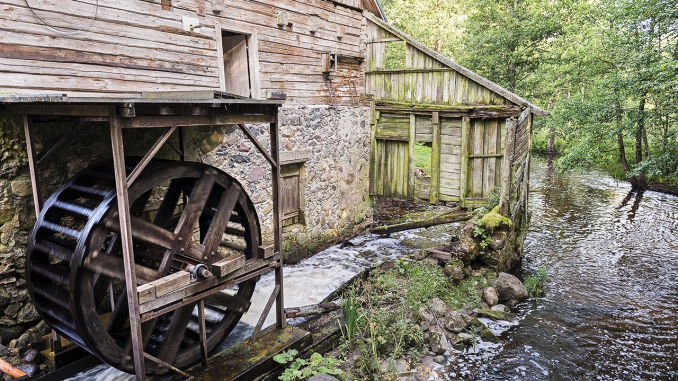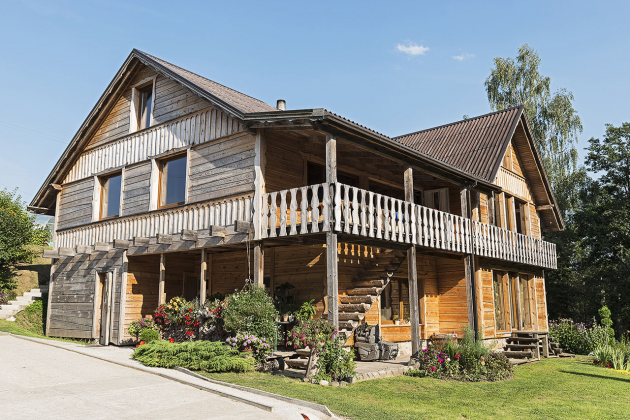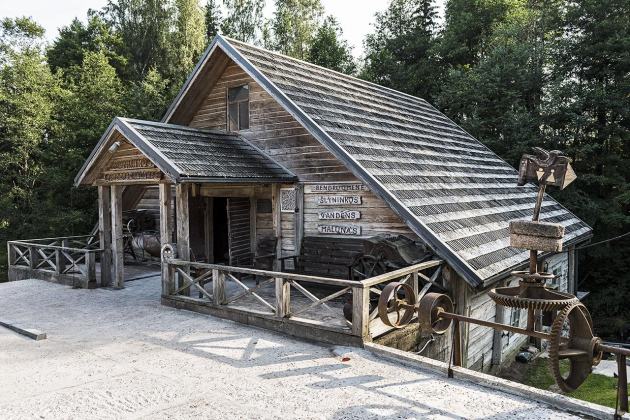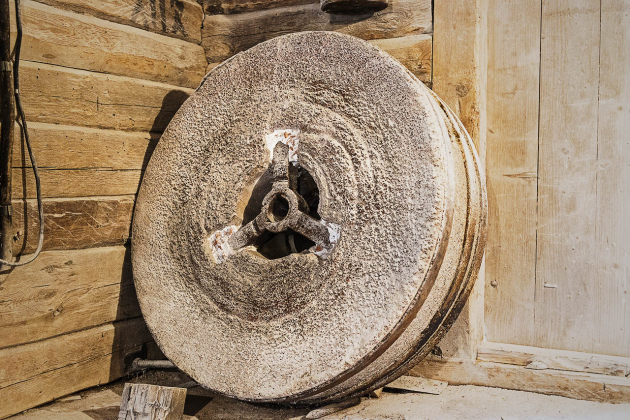
Most water mills have been converted into restaurants and hotels, but this one keeps on operating with some authentic equipment. The mill is open for visitors and sells organic grain and flour produced on the premise.

The history of water mills goes back thousands of years to Greek and Roman times. There are various techniques, but the one in Zarasai has an undershot water wheel. This technique has been around for more than 2000 years. Water mills utilize hydropower, green energy, and consist of a structure that includes a water wheel (or turbine) that drives a mechanical process, referred to as milling or grinding.
Regina Veselienė, daughter and granddaughter of the former mill caretakers, is now the owner. Her husband, Stasys explains that the mill has gone through quite a bit of history. This water mill was one of seven build in the area by the then landowner, Magnushevsky. The mill’s operation was rented out to local operators. During the Soviet occupation, the mill was nationalised and the owner, like so many business owners, deported to Siberia. The owner’s granddaughter left for Poland, asking Regina’s father to take care of the mill.

The watermill continued to operate. After the restoration of Lithuania’s independency, the mill was privatised. Regina’s parents who had looked after the upkeep and management of the mill purchased the operation. Now the mill operates nearly every day when it receives grain from farms nearby. The mill is turned off when children visit as not to scare them with the noise of the operation. The owners offer educational programmes for children so that they can learn about the technique of milling in a historical setting.
Stasys has plenty of unique stories about the mill and allows visitors to visit the three floors of the building. Part of the mill is now operated with modern Swiss equipment, but they hope to have the water turbines going again soon. Once inside the mill on quickly notices the bags with wheat are waiting to be turned into flour. One can see old style weighting scales, a roller machine, millstones, and a hoisting wheel to move the sacks to the lower floor, all the equipment that is required to operate a water mill.

The site around the mill has some romantic vistas and one feels quickly walking down memory lane, back into a world that has nearly disappeared. There are walking paths through the unspoiled surrounding area and the owners operate a shop selling various flour types, including organic flour milled in the water mill. Bread is baked from the various grains milled by Regina’s husband. The owners also operate a small restaurant on the premises, specialising in authentic Lithuanian cuisine.
You can contact the mill by telephone: +370 686 23348

Be the first to comment